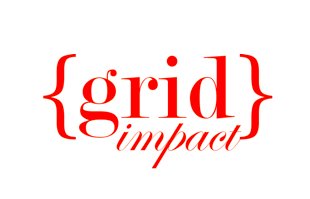 Congressman Earl Blumenauer was in Portland this week to kickstart a fundraising campaign for his re-election to the U.S. House of Representatives.
Congressman Earl Blumenauer was in Portland this week to kickstart a fundraising campaign for his re-election to the U.S. House of Representatives.{via Bike Portland}
In recent weeks, the media has taken note of Blumenauer’s rising position of influence in the halls of Congress and his reputation as the “bike guy” on Capitol Hill.
“It’s about changing land-use patterns so you don’t have to burn a gallon of gas to buy a gallon of milk.”
Much of his talk focused on the example Portland is setting for the entire nation. He called Portland, “the epicenter of an American cycling revolution.” He spoke about our campaign to establish a network of bike friendly streets and said, “families cycling on bicycle boulevards are an indicator species of a livable community.”
He also rallied the troops and spoke of the critical importance of a “citizen infrastructure…the people who’ve decided that they’re going to make a difference.” Blumenauer wants to, “make the cycling community a powerful political force”. He said that if one million “cycling fanatics” around the country could get together than it would have “a transformational effect on politics.”
(Anyone up for organizing a One Million Man (and Woman) Ride to Washington?)
Here’s what Blumenauer said about the climate change crisis:
“We’ve got about 10 years to turn around the global warming equation. We’ve got an 80% reduction by 2050, which means we’ve got to get started on it now; it’s energy, it’s transportation, and it’s land use, and the bicycle is something that can bring people together that can make a difference in a hurry, and start changing the way we that regard how we work with one another, how we deal with natural resources, how we live a little lighter on the planet. So this isn’t just about bicycle advocacy, this is about saving the world, and healing the political process.”
Blumenauer also stressed the importance of taking advantage of the current political climate in Washington:
“We’re going into a three year window of opportunity that is unparalleled. We have 378 days until there is a new administration, and in that period of time, we’re going to be setting the table legislatively and politically.”
Blumenauer said that he guarantees that no matter who the next president is, “he or she will be much more receptive to what we’re trying to do, without question.”
As for the recently defeated Bike Commuter Benefit, Blumenauer was upbeat and spoke of a silver lining,
“We got a bike commuter benefit through the House twice this year…it was the Republican road block in the Senate that knocked it out, but we’re going to get there. We’ve now got people in the House Ways and Means Committee that agree it makes sense…and the good news of them knocking it out is that we’re going to be able to raise it when it gets back in, it’s going to be a bigger number. It’s the sort of thing that will level the playing field. We don’t even have to level the playing field, but if we just don’t tilt it quite so much against cyclists and pedestrians I think it will make a huge difference.”
And on the next Transportation Bill, which is up again in the next Congress, Blumenauer said the cycling stars are coming into alignment with Jim Oberstar — the “#1 cycling advocate who’s ever served in Congress” — is in line to become chair of the House Transportation Committee.
Blumenauer said Oberstar’s leadership of that committee will be “transformational” and “profound”. He also said that Oberstar is convinced that what Portland has done with cycling, transit and land use is “part of what’s going to save America.”
Blumenauer also noted that the chair of the House Subcommittee on Transportation will be Oregon’s other bike-friendly congressman, Peter DeFazio.
But Blumenauer also warned of some storm clouds ahead. He said the Transportation Fund is going into deficit next year for the first time in history and that he “wants to make sure we don’t have to have a food fight for table scraps over transportation.”
Blumenauer seemed to pin much hope on a grassroots, citizen-led movement for bikes. He closed his talk by saying,
We’ve got to transform this into a national movement. We’re making progress, we’ve got a great opportunity, but it’s going to be tough sledding because there’s lots of competition and we’ve got some significant hurdles to overcome.

No comments:
Post a Comment